#decolonization
Text
A Speech For the Colonist.
It is my opinion that communist movements within the US fail because they refuse to address decolonization.
It is my further opinion that the contradiction between colonizer and colonized supercedes the contradiction of class. The Native American Nations are colonized, Black people are colonized, Hispanic people are colonized. Colonization is the key to white supremacy and white supremacy is the key to class within the United States and Canada.
If you talk to most white communists about decolonization within the United States you'll get things like, "Well, decolonization will come with the revolution because we'll give the people the autonomy and resources they need to care for their communities." This is the exact same rhetoric that alienated black revolutionaries from the American Communist Party in the 60s. "Under communism every worker will have what he needs and be able to give according to his means, so we don't need to worry about race."
Comrade, we do. We do need to worry about race. We cannot simply wish a reality away because in our minds Everyone Will Be White in a communist society.
We need to acknowledge the fact that every single White Person within the United States, and the rest of the Americas for that matter, is a colonist. Our institutions are colonial. Our industry is colonial. Our cities are colonial. Our infrastructure is colonial. Our lawns are colonial. Every single aspect of our lives has its roots in colonization.
We still plunder the earth like we're sending silver and timber back to England and Spain.
By pretending that we are not colonists we make it impossible to address the ways in which we colonize. By ignoring the ways in which we colonize we fail to address the ways in which we are imperialist. By failing to address our imperialism we fail address capitalism.
We are colonists. Pretending that this isn't the case doesn't make it any less reality.
You'll acknowledge the fact that we live on stolen land but would you hand Seattle back to the Duwamish? Would you cede Delaware back to the Lenape? Would you take up arms, and then lay them down to a nation of people that are unlike you? Would you take up arms and lay them down again for a nation of people that you might not agree with politically? Have you confronted your fear that they would treat you just like we treat them?
For that matter, how have you addressed your conception of Black Nationalism? Any white communist will tell you that Nationalism as a concept is counter-revolutionary but how do you address the fact that there is an entire race of people who were ripped from their homes and forced to colonize another land? The solution certainly isn't Liberia, which is itself a colonial exercise.
How do you address the fact that any black person will tell you that a nation created for and by black americans would be a pretty good deal in their book? How do address the fact that our colonial nation isn't their nation and they know it? What do you do? Do you call them reactionary? Do you tell them that their desire for a home of their own is because we orphaned their ancestors and that they need to get over it?
Comrade, these are the questions you need to answer. You need to listen to the people we have colonized and you need to really observe our material conditions.
We live with the unique situation that, as a result of a vicious and often ignored genocide, the colonizers are the majority ethnic group within the colonized land. White people make up 57% of this country. And unlike other colonized regions, there's no France for us to return to. There's no England, there's no Belgium, there's no Netherlands, there's no Spain. The working class white is stuck here. It's up to us to address our own reality and to understand that, ultimately, no way and no how can we be the face of revolution within the united states.
No white led communist movement will prosper because, even now, we still have too much to lose. Our people will never start the fight as we are now. Understand that.
#This isn't the completed speech#Which I am writing as homework for my Rhetoric class#but it encapsulates a lot of the ideas I want to address#Colonization#Decolonization#Communism#Consider also the word Comrade#WE DON'T EVEN HAVE OUR OWN WORD FOR IT#ITS RUSSIAN#anyway
41 notes
·
View notes
Text
17/12/23 this masterlist has been completely, vetted, revamped and reformatted with free access to all reading and viewing material. It will be updated and edited periodically so please try and reblog the original post if you're able.
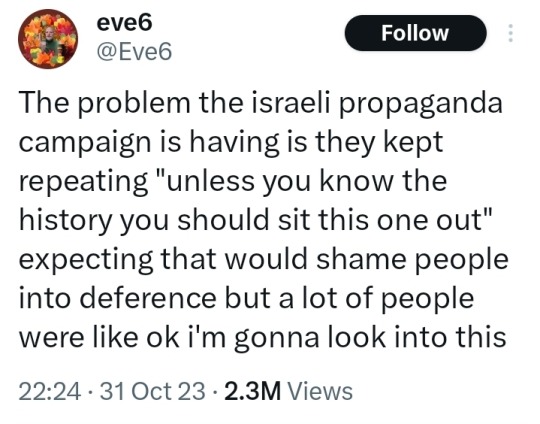
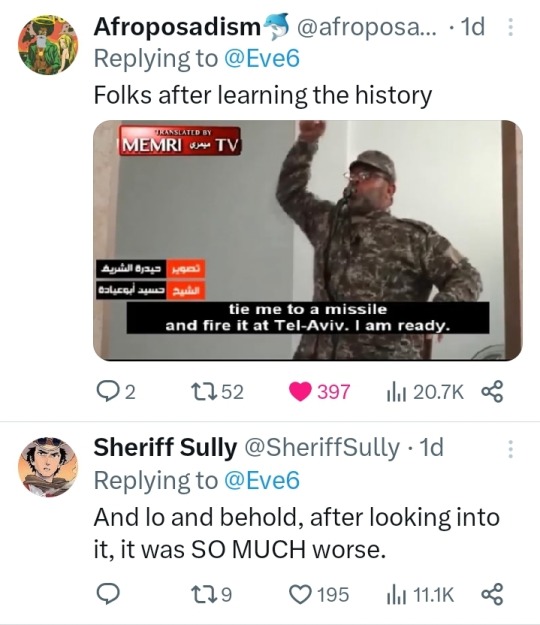

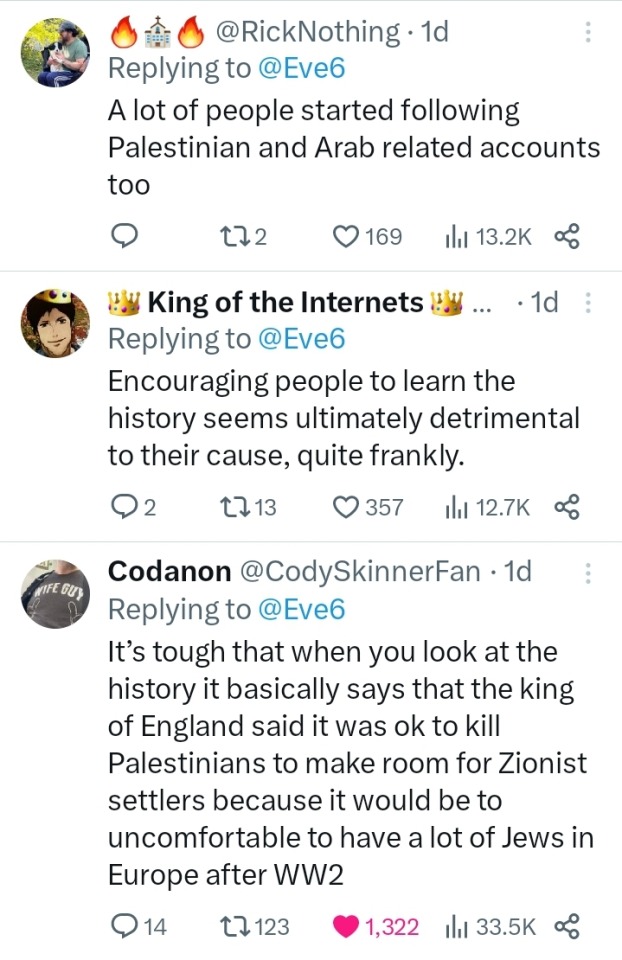
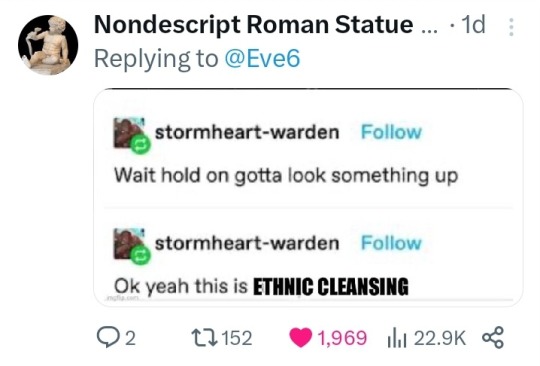
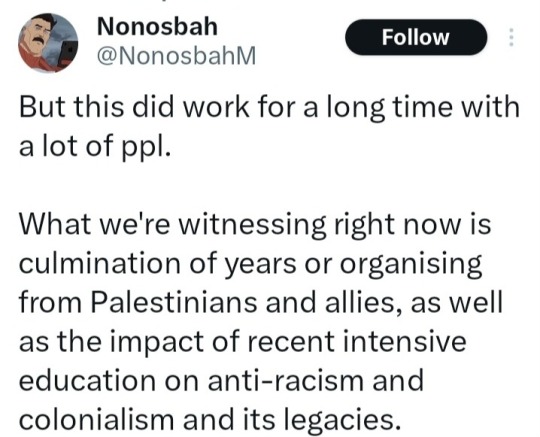
The Big Damn List Of Stuff They Said You Didn't Know
(Yes, it's a lot. Just choose your preferred medium and then pick one.)
Podcasts
Backgrounders and Quick Facts
Interactive Maps
Teach-Out Resources
Reading Material (free)
Films and Documentaries (free)
Non-Governmental Organizations
Social Media
How You Can Help
Podcasts
Cocktails & Capitalism: The Story of Palestine Part 1, Part 3
It Could Happen Here: The Cheapest Land is Bought with Blood, Part 2, The Balfour Declaration
Citations Needed: Media narratives and consent manufacturing around Israel-Palestine and the Gaza Siege
The Deprogram: Free Palestine, ft. decolonizatepalestine.com.
Backgrounders and Quick Facts
The Palestine Academy: Palestine 101
Institute for Middle East Understanding: Explainers and Quick Facts
Interactive Maps
Visualizing Palestine
Teach-Out Resources
1) Cambridge UCU and Pal Society
Palestine 101
Intro to Palestine Film + Art + Literature
Resources for Organising and Facilitating)
2) The Jadaliya YouTube Channel of the Arab Studies Institute
Gaza in Context Teach-in series
War on Palestine podcast
Updates and Discussions of news with co-editors Noura Erakat and Mouin Rabbani.
3) The Palestine Directory
History (virtual tours, digital archives, The Palestine Oral History Project, Documenting Palestine, Queering Palestine)
Cultural History (Palestine Open Maps, Overdue Books Zine, Palestine Poster Project)
Contemporary Voices in the Arts
Get Involved: NGOs and campaigns to help and support.
3) PalQuest Interactive Encyclopedia of the Palestine Question.
4) The Palestine Remix by Al Jazeera
Books and Articles
Free reading material
My Gdrive of Palestine/Decolonization Literature (nearly all the books recommended below + books from other recommended lists)
Five free eBooks by Verso
Three Free eBooks on Palestine by Haymarket
LGBT Activist Scott Long's Google Drive of Palestine Freedom Struggle Resources
Recommended Reading List
Academic Books
Edward Said (1979) The Question of Palestine, Random House
Ilan Pappé (2002)(ed) The Israel/Palestine Question, Routledge
Ilan Pappé (2006) The Ethnic Cleansing of Palestine, OneWorld Publications
Ilan Pappé (2011) The Forgotten Palestinians: A History of the Palestinians in Israel, Yale University Press
Ilan Pappé (2015) The Idea of Israel: A History of Power and Knowledge, Verso Books
Ilan Pappé (2017) The Biggest Prison On Earth: A History Of The Occupied Territories, OneWorld Publications
Ilan Pappé (2022) A History of Modern Palestine, Cambridge University Press
Rosemary Sayigh (2007) The Palestinians: From Peasants to Revolutionaries, Bloomsbury
Andrew Ross (2019) Stone Men: the Palestinians who Built Israel, Verso Books
Rashid Khalidi (2020) The Hundred Years’ War on Palestine: A History of Settler Colonialism and Resistance 1917–2017
Ariella Azoulay (2011) From Palestine to Israel: A Photographic Record of Destruction and State Formation, 1947-1950, Pluto Press
Ariella Azoulay and Adi Ophir (2012) The One-State Condition: Occupation and Democracy in Israel/Palestine, Stanford University Press.
Jeff Halper (2010) An Israeli in Palestine: Resisting Dispossession, Redeeming Israel, Pluto Press
Jeff Halper (2015) War Against the People: Israel, the Palestinians and Global Pacification
Jeff Halper (2021) Decolonizing Israel, Liberating Palestine: Zionism, Settler Colonialism, and the Case for One Democratic State, Pluto Press
Anthony Loewenstein (2023) The Palestine Laboratory: How Israel exports the Technology of Occupation around the World
Noura Erakat (2019) Justice for Some: Law and the Question of Palestine, Stanford University Press
Neve Gordon (2008) Israel’s Occupation, University of California Press
Joseph Massad (2006) The Persistence of the Palestinian Question: Essays on Zionism and the Palestinians, Routledge
Memoirs
Edward Said (1986) After the Last Sky: Palestine Lives, Columbia University PEdward Saidress
Edward Said (2000) Out of Place; A Memoir, First Vintage Books
Mourid Barghouti (2005) I saw Ramallah, Bloomsbury
Hatim Kanaaneh (2008) A Doctor in Galilee: The Life and Struggle of a Palestinian in Israel, Pluto Press
Raja Shehadeh (2008) Palestinian Walks: Into a Vanishing Landscape, Profile Books
Ghada Karmi (2009) In Search of Fatima: A Palestinian Story, Verso Books
Vittorio Arrigoni (2010) Gaza Stay Human, Kube Publishing
Ramzy Baroud (2010) My Father Was a Freedom Fighter: Gaza's Untold Story, Pluto Press
Izzeldin Abuelaish (2011) I Shall Not Hate: A Gaza Doctor’s Journey on the Road to Peace and Human Dignity, Bloomsbury
Atef Abu Saif (2015) The Drone Eats with Me: A Gaza Diary, Beacon Press
Anthologies
Voices from Gaza - Insaniyyat (The Society of Palestinian Anthropologists)
Letters From Gaza • Protean Magazine
Salma Khadra Jayyusi (1992) Anthology of Modern Palestinian Literature, Columbia University Press
ASHTAR Theatre (2010) The Gaza Monologues
Refaat Alreer (ed) (2014) Gaza Writes Back, Just World Books
Refaat Alreer, Laila El-Haddad (eds) (2015) Gaza Unsilenced, Just World Books
Cate Malek and Mateo Hoke (eds)(2015) Palestine Speaks: Narrative of Life under Occupation, Verso Books
Jehad Abusalim, Jennifer Bing (eds) (2022) Light in Gaza: Writings Born of Fire, Haymarket Books
Short Story Collections
Ghassan Kanafani, Hilary Kilpatrick (trans) (1968) Men in the Sun and Other Palestinian Stories, Lynne Rienner Publishers
Ghassan Kanafani, Barbara Harlow, Karen E. Riley (trans) (2000) Palestine’s Children: Returning to Haifa and Other Stories, Lynne Rienner Publishers
Atef Abu Saif (2014) The Book of Gaza: A City in Short Fiction, Comma Press
Samira Azzam, Ranya Abdelrahman (trans) (2022) Out Of Time: The Collected Short Stories of Samira Azzam
Sonia Sulaiman (2023) Muneera and the Moon; Stories Inspired by Palestinian Folklore
Essay Collections
Edward W. Said (2000) Reflections on Exile and Other Essays, Harvard University Press
Salim Tamari (2008) Mountain against the Sea: Essays on Palestinian Society and Culture, University of California Press
Fatma Kassem (2011) Palestinian Women: Narratives, histories and gendered memory, Bloombsbury
Ramzy Baroud (2019) These Chains Will Be Broken: Palestinian Stories of Struggle and Defiance in Israeli Prisons, Clarity Press
Novels
Sahar Khalifeh (1976) Wild Thorns, Saqi Books
Liyana Badr (1993) A Balcony over the Fakihani, Interlink Books
Hala Alyan (2017) Salt Houses, Harper Books
Susan Abulhawa (2011) Mornings in Jenin, Bloomsbury
Susan Abulhawa (2020) Against the Loveless World, Bloomsbury
Graphic novels
Joe Sacco (2001) Palestine
Joe Sacco (2010) Footnotes in Gaza
Naji al-Ali (2009) A Child in Palestine, Verso Books
Mohammad Sabaaneh (2021) Power Born of Dreams: My Story is Palestine, Street Noise Book*
Poetry
Fady Joudah (2008) The Earth in the Attic, Sheridan Books,
Ghassan Zaqtan, Fady Joudah (trans) (2012) Like a Straw Bird It Follows Me and Other Poems, Yale University Press
Hala Alyan (2013) Atrium: Poems, Three Rooms Press*
Mohammed El-Kurd (2021) Rifqa, Haymarket Books
Mosab Abu Toha (2022) Things You May Find Hidden in My Ear: Poems from Gaza, City Lights Publishers
Tawfiq Zayyad (2023) We Are Here to Stay, Smokestack Books*
The Works of Mahmoud Darwish
Poems
Rafeef Ziadah (2011) We Teach Life, Sir
Nasser Rabah (2022) In the Endless War
Refaat Alareer (2011) If I Must Die
Hiba Abu Nada (2023) I Grant You Refuge/ Not Just Passing
[All books except the ones starred are available in my gdrive. I'm adding more each day. But please try and buy whatever you're able or borrow from the library. Most should be available in the discounted Free Palestine Reading List by Pluto Press, Verso and Haymarket Books.]
Human Rights Reports & Documents
Information on current International Court of Justice case on ‘Legal Consequences arising from the Policies and Practices of Israel in the Occupied Palestinian Territory, including East Jerusalem’
UN Commission of Inquiry Report 2022
UN Special Rapporteur Report on Apartheid 2022
Amnesty International Report on Apartheid 2022
Human Rights Watch Report on Apartheid 2021
Report of the United Nations Fact-Finding Mission on the Gaza Conflict’ 2009 (‘The Goldstone Report’)
Advisory Opinion on the Legal Consequences of the Construction of a Wall in the Occupied Palestinian Territory, International Court of Justice, 9 July 2004
Films
Documentaries
Jenin, Jenin (2003) dir. Mohammed Bakri
Massacre (2005) dir. Monica Borgmann, Lokman Slim, Hermann Theissen
Slingshot HipHop (2008) dir. Jackie Reem Salloum
Waltz with Bashir (2008) dir. Ari Folman † (also on Amazon Prime)
Tears of Gaza (2010) dir. Vibeke Løkkeberg (also on Amazon Prime)
5 Broken Cameras (2011) dir. Emad Burnat (also on Amazon Prime)
The Gatekeepers (2012) dir. Dror Moreh (also on Amazon Prime)
The Great Book Robbery (2012) | Al Jazeera English
Al Nakba (2013) | Al Jazeera (5-episode docu-series)
The Village Under the Forest (2013) dir. Mark J. Kaplan
Where Should The Birds Fly (2013) dir. Fida Qishta
Naila and the Uprising (2017) (also on Amazon Prime)
GAZA (2019) dir. Andrew McConnell and Garry Keane
Gaza Fights For Freedom (2019) dir. Abby Martin
Little Palestine: Diary Of A Siege (2021) dir. Abdallah Al Khatib
Palestine 1920: The Other Side of the Palestinian Story (2021) | Al Jazeera World Documentary
Gaza Fights Back (2021) | MintPress News Original Documentary | dir. Dan Cohen
Innocence (2022) dir. Guy Davidi
Short Films
Fatenah (2009) dir. Ahmad Habash
Gaza-London (2009) dir. Dina Hamdan
Condom Lead (2013) dir. Tarzan Nasser, Arab Nasser
OBAIDA (2019) | Defence for Children Palestine
Theatrical Films
Divine Intervention (2002) | dir. Elia Suleiman (also on Netflix)
Paradise Now (2005) dir Hany Abu-Assad (also on Amazon Prime)
Lemon Tree (2008) (choose auto translate for English subs) (also on Amazon Prime)
It Must Be Heaven (2009) | dir. Elia Suleiman †
The Promise (2010) mini-series dir. Peter Kosminsky (Part 1, Part 2, Part 3, Part 4)
Habibi (2011)* dir. Susan Youssef
Omar (2013)* dir. Hany Abu-Assad †
3000 Nights (2015)* dir. Mai Masri
Foxtrot (2017) dir. Samuel Maoz (also on Amazon Prime)
The Time that Remains (2019) dir. Elia Suleiman †
Gaza Mon Amour (2020) dir. Tarzan Nasser, Arab Nasser †
The Viewing Booth (2020) dir. Ra'anan Alexandrowicz (on Amazon Prime and Apple TV)
Farha (2021)* | dir. Darin J. Sallam
Palestine Film Institute Archive
All links are for free viewing. The ones marked with a star (*) can be found on Netflix, while the ones marked † can be downloaded for free from my Mega account.
If you find Guy Davidi's Innocence anywhere please let me know, I can't find it for streaming or download even to rent or buy.
In 2018, BDS urged Netflix to dump Fauda, a series created by former members of IOF death squads that legitimizes and promotes racist violence and war crimes, to no avail. Please warn others to not give this series any views. BDS has not called for a boycott of Netflix. ]
Planning to link two separate posts here listing all the books in my drive and all the films I couldn't include here. Check back for updates.
NGOs
The Boycott, Divestment, Sanctions (BDS) Movement
Medical Aid for Palestinians
Euro-Mediterranean Human Rights Monitor
Palestine Defence for Children International
Palestinian Feminist Collective
Al-Shabaka: The Palestinian Policy Network
Addameer Prisoner Support and Human Rights Association
Institute for Palestine Studies
Al Haq
Artists for Palestine
The Palestine Museum
Jewish Currents
B’Tselem
DAWN
Social Media
Palestnians on Tumblr
@el-shab-hussein
@killyfromblame
@apollos-olives
@fairuzfan
@palipunk
@sar-soor
@nabulsi
@ibtisams
@wearenotjustnumbers2
@90-ghost (is in Gaza right now. Please donate to his GFM and boost it.)
@tamarrud
Allies and advocates (not Palestinian)
@bloglikeanegyptian beautiful posts that read like op-eds
@vyorei daily news roundups
@luthienne resistance through prose
@decolonize-the-left scoop on the US political plans and impacts
@feluka
(Please don't expect any of these blogs to be completely devoted to Palestine allyship; they do post regularly about it but they're still personal blogs and post whatever else they feel like. Do not harrass them.)
Gaza journalists
Motaz Azaiza IG: @motaz_azaiza | Twitter: @azaizamotaz9 | TikTok: _motaz.azaiza (left Gaza as of Jan 23)
Bisan Owda IG and TikTok: wizard_bisan1 | Twitter: @wizardbisan
Saleh Aljafarawi IG: @saleh_aljafarawi | Twitter: @S_Aljafarawi | TikTok: @saleh_aljafarawi97
Plestia Alaqad IG: @byplestia | TikTok: @plestiaaqad (left Gaza)
Wael Al-Dahdouh IG: @wael_eldahdouh | Twitter: @WaelDahdouh (left Gaza as of Jan 13)
Hind Khoudary IG: @hindkhoudary | Twitter: @Hind_Gaza
Ismail Jood IG and TikTok: @ismail.jood (announced end of coverage on Jan 25)
Yara Eid IG: @eid_yara | Twitter: @yaraeid_
Eye on Palestine IG: @eye.on.palestine | Twitter: @EyeonPalestine | TikTok: @eyes.on.palestine
Muhammad Shehada Twitter: @muhammadshehad2
(Edit: even though some journos have evacuated, the footage up to the end of their reporting is up on their social media, and they're also doing urgent fundraisers to get their families and friends to safety. Please donate or share their posts.)
News organisations
The Electronic Intifada Twitter: @intifada | IG: @electronicintifada
Quds News Network Twitter and Telegram: @QudsNen | IG: @qudsn (Arabic)
Times of Gaza IG: @timesofgaza | Twitter: @Timesofgaza | Telegram: @TIMESOFGAZA
The Palestine Chronicle Twitter: @PalestineChron | IG: @palestinechron | @palestinechronicle
Al-Jazeera Twitter: @AJEnglish | IG and TikTok: @aljazeeraenglish, @ajplus
Middle East Eye IG and TikTok: @middleeasteye | Twitter: @MiddleEastEye
Democracy Now Twitter and IG: @democracynow TikTok: @democracynow.org
Haaretz* Twitter: @Haaretz | IG: haaretzcom
Mondoweiss IG and TikTok: @mondoweiss | Twitter: @Mondoweiss
The Intercept Twitter and IG: @theintercept
MintPress Twitter: @MintPressNews | IG: mintpress
Novara Media Twitter and IG: @novaramedia
Truthout Twitter and IG: @truthout
[*Please note that Haaretz is an Israeli Liberal Zionist newspaper and heavily propagandized against Palestine. It's included here only as a Zionist critic of the Israeli government and IDF from within Israel.]
Palestnians on Other Social Media
Mouin Rabbani: Middle East analyst specializing in the Arab-Israeli conflict and Palestinian affairs. Twitter: @MouinRabbani
Noura Erakat: Legal scholar, human rights attorney, specialising in Israeli–Palestinian conflict. Twitter: @4noura | IG: @nouraerakat | (http://www.nouraerakat.com/)
Hebh Jamal: Journalist in Germany. IG and Twitter: @hebh_jamal
Ghada Sasa: PhD candidate in International Relations, green colonialism, and Islam in Canada. Twitter: @sasa_ghada | IG: @ghadasasa48
Taleed El Sabawi: Assistant professor of law and researcher in public health. Twitter: @el_sabawi | IG
Lexi Alexander: Filmmaker and activist. Twitter: @LexiAlex | IG: @lexialexander1
Mariam Barghouti: Writer, blogger, researcher, and journalist. Twitter: @MariamBarghouti | IG: @mariambarghouti
Rasha Abdulhadi: Queer poet, author and cultural organizer. Twitter: @rashaabdulhadi
Mohammed el-Kurd: Writer and activist from Jerusalem. IG: @mohammedelkurd | Twitter: @m7mdkurd
Ramy Abdu: Founder and Chairman of the Euro-Mediterranean Human Rights Monitor. Twitter: @RamyAbdu
Subhi: Founder of The Palestine Academy website. IG: @sbeih.jpg |TikTok @iamsbeih | Twitter: @iamsbeih
Allies
Lowkey (Kareem Dennis): Rapper, activist, video and podcast host for MintPress. Twitter: @LowkeyOnline IG: @lowkeyonline
Francesca Albanese: UN Special Rapporteur on the Occupied Territories. Twitter: @FranceskAlbs
Sana Saeed: Journalist and media critic, host and senior producer at Al-Jazeera Plus. IG: @sanaface | Twitter: @SanaSaeed
Shailja Patel: Poet, playwright, activist, founding member of Kenyans For Peace, Truth and Justice. Twitter: @shailjapatel
Jairo I. Fúnez-Flores: Researcher in curriculum studies, decolonial theory, social movements. Twitter: @Jairo_I_Funez
Jack Dodson: Journalist and Filmmaker. Twitter: @JackDodson IG: @jdodson4
Imani Barbarin: Writer, public speaker, and disability rights activist. IG: @crutches_and_spice | Twitter: @Imani_Barbarin | TikTok: @crutches_and_spice
Jewish Allies
Katie Halper: US comedian, writer, filmmaker, podcaster, and political commentator. IG and Twitter: @kthalps
Amanda Gelender: Writer. Twitter: @agelender | (https://agelender.medium.com/)
Yoav Litvin: Jerusalem-born Writer and Photographer. IG and Twitter: @nookyelur | (yoavlitvin.com)
Alana Lentin: Professor of Cultural and Social Analysis at Western Sydney University. Twitter: @alanalentin
Gideon Levy: anti-Zionist Israeli journalist and activist. Twitter: @gideonle
How You Can Help Palestine
How to be an Ally 101
URGENT‼️📢: Global Strike Guide
If any links are broken let me know. Or pull up the current post to check whether it's fixed.
"Knowledge is Israel's worst enemy. Awareness is Israel's most hated and feared foe. That's why Israel bombs a university: it wants to kill openness and determination to refuse living under injustice and racism."
— Dr. Refaat Alareer, (martyred Dec 6, 2023)
From River To The Sea Palestine Will Be Free 🇵🇸🇵🇸🇵🇸
-----
Edit 1: took the first video down because turns out the animator is a terf and it links to her blog. Really sorry for any distress.
Edit 2: All recommended readings + Haymarket recommendations + essential decolonization texts have been uploaded to my linked gdrive. I will adding more periodically. Please do buy or check them out from the library if possible, but this post was made for and by poor and gatekept Global South bitches like me.
Some have complained about the memes being disrespectful. You're actually legally obligated to make fun of Israeli propaganda and Zionists. I don't make the rules.
Edit 3: "The river to the sea" does not mean the expulsion of Jews from Palestine. Believing that is genocide apologia.
Edit 4: Gazans have specifically asked us to put every effort into pushing for a ceasefire instead of donations. "Raising humanitarian aid" is a grift Western governments are pushing right now to deflect from the fact that they're sending billions to Israel to keep carpet bombing Gazans. As long as the blockades are still in place there will never be enough aid for two million people. (UPDATE: PLEASE DONATE to the Gazan's GoFundMe fundraisers to help them buy food and get out of Rafah into Egypt. E-SIMs, food and medical supplies are also essential. Please donate to the orgs linked in the How You Can Help. Go on the strikes. DO NOT STOP PROTESTING.)
Edit 5: Google drive link for academic books folder has been fixed. Also have added a ton of resources to all the other folders so please check them out.
Edit 6: Added interactive maps, Jadaliya channel, and masterlists of donation links and protest support and of factsheets.
The twitter accounts I reposted as it was given to me and I just now realized it had too many Israeli voices and almost none of the Palestinians I'm following, so it's being edited. Check back for more. I also removed sources like Jewish Voices of Peace and Breaking the Silence that do good work but have come under fair criticism from Palestinians.
Edit 7: Complete reformatting
Edit 8: Complete revamping of the social media section. It now reflects my own following list.
Edit 9: removed some more problematic people from the allies list. Remember that the 2SS is a grift that's used to normalize violence and occupation, kids. Supporting the one-state solution is lowest possible bar for allyship. It's "Free Palestine" not "Free half of Palestine and hope Israel doesn't go right back to killing them".
Edit 10: added The Palestine Directory + Al Jazeera documentary + Addameer. This "100 links per post" thing sucks.
Edit 11: more documentaries and films
Edit 12: reformatted reading list
Edit 13: had to remove @palipunk's masterlist to add another podcast. It's their pinned post and has more resources Palestinian culture and crafts if you want to check it out
#free palestine#palestine resources#palestine reading list#decolonization#israel palestine conflict#israel palestine war#british empire#american imperialism#apartheid#social justice#middle east history#MENA#arab history#anti zionism#palestinian art#palestinian history#palestinian culture#palestinian genocide#al nakba#ethnic cleansing#war crimes#racism#imperialism#colonialism#british colonialism#knee of huss#ask to tag#Youtube
72K notes
·
View notes
Text
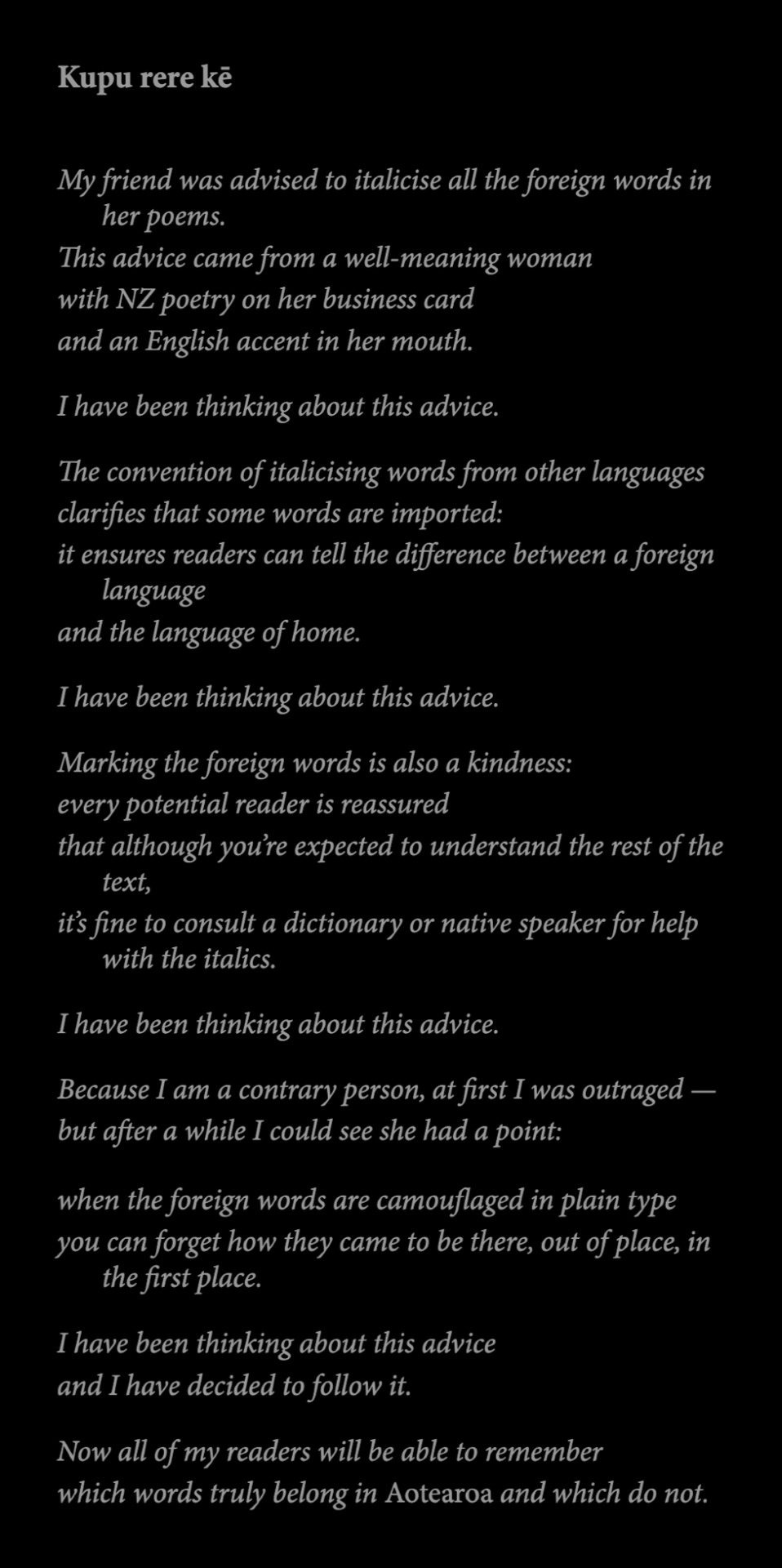
Alice Te Punga Somerville, Always Italicise: How to Write While Colonised - Kupu rere kē
[ID: A poem titled: Kupu rere kē. [in italics] My friend was advised to italicise all the foreign words in her poems. This advice came from a well-meaning woman with NZ poetry on her business card and an English accent in her mouth. I have been thinking about this advice. The convention of italicising words from other languages clarifies that some words are imported: it ensures readers can tell the difference between a foreign language and the language of home. I have been thinking about this advice. Marking the foreign words is also a kindness: every potential reader is reassured that although you're expected to understand the rest of the text, it's fine to consult a dictionary or native speaker for help with the italics. I have been thinking about this advice. Because I am a contrary person, at first I was outraged — but after a while I could see she had a point: when the foreign words are camouflaged in plain type you can forget how they came to be there, out of place, in the first place. I have been thinking about this advice and I have decided to follow it. Now all of my readers will be able to remember which words truly belong in -[end italics]- Aotearoa -[italics]- and which do not.
Next image is the futurama meme: to shreds you say...]
(Image ID by @bisexualshakespeare)

#powerful right off the bat#Alice Te Punga Somerville#Always Italicise#Always Italicise: How to Write While Colonised#new zealand poem#Always Italicise How to Write While Colonised#Kupu rere kē#aotearoa#quote#quotes#poem#poetry#Māori poetry#Māori#colonization#colonisation#Decolonisation#Te reo māori#Decolonization#new zealand#new zealand poetry
76K notes
·
View notes
Text
so i study decolonization, as in i studied it as part of my degree, and i thought I'd make a list of some readings/films that might offer additional insight about decolonization (it also helps if you're tired of the christian moralistic thinking)
occupation 101 (can be found on youtube i believe, it's about the history between isreal and palestine, it focuses on palestinians and it is quite comprehensive. there's live footage, there's interviews with palestinian children, etc. it's a must watch i think, regarding palestine. it points the finger squarely at the united states.)
the wretched of the earth, franz fanon. fanon is really well known in the decolonization sphere because he writes about it in a very succinct and clear way. to him, decolonization can never occur peacefully, and i think that's a really important key lesson. he also talks about how colonizers don't just take land, they reframe ideas, they take language, art, thoughts.
the battle of algiers, 1966. this is a fascinating film, it's sort of a documentary, they got the actual people to play their parts. it describes and interviews the main individuals involved in the fight for independence within Algiers. i think understanding how a nation can gain independence over its colonial forces is really important in the grand scheme of decolonialism.
unthinking eurocentrism. if you can get your hands on it, i love this text. it's so poignant and it lays everything out so clearly and it really shows how we center our worlds around eurocentrism and westernism.
9K notes
·
View notes
Text
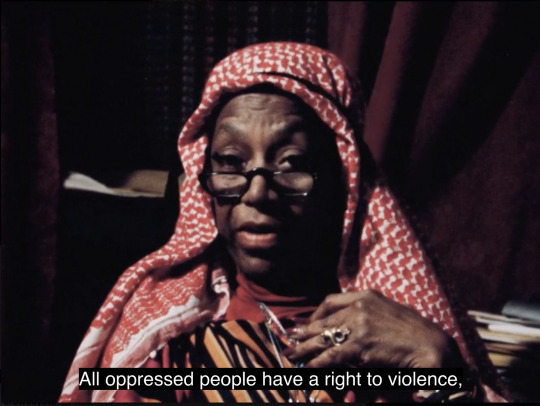
Born in Flames (1983)
by Lizzie Borden
#1980s movies#No Wave#Downtown NYC#Florynce Kennedy#free palestine#Gaza#Keffiyeh#intifada#civil rights#i said what i said#decolonization#I don't know who needs to hear this today but#palestine#Israel#israeli apartheid#ethnic cleansing#Vaporwave#Social Justice#supernatural#qsmp#mass effect#us politics#loki#one piece#taylor swift#the eras tour
6K notes
·
View notes
Text
the whole thing about israeli settler "leftists" not being truly "left" due to them upholding their illegitimate settler state is also true for usamerican "leftists" who don't fight for the full decolonization of turtle island btw
#like the settler socialists who just want to replace our illegitimate settler gov with a socialist one#btw i am a settler myself.#my text#decolonization#settler colonialism
3K notes
·
View notes
Text
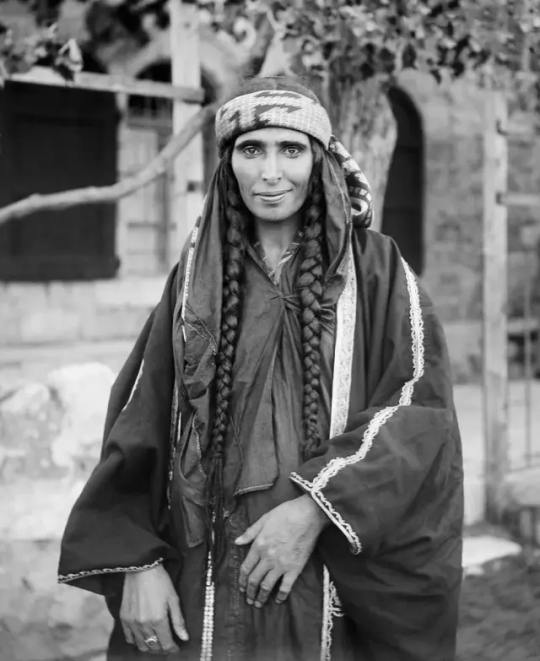
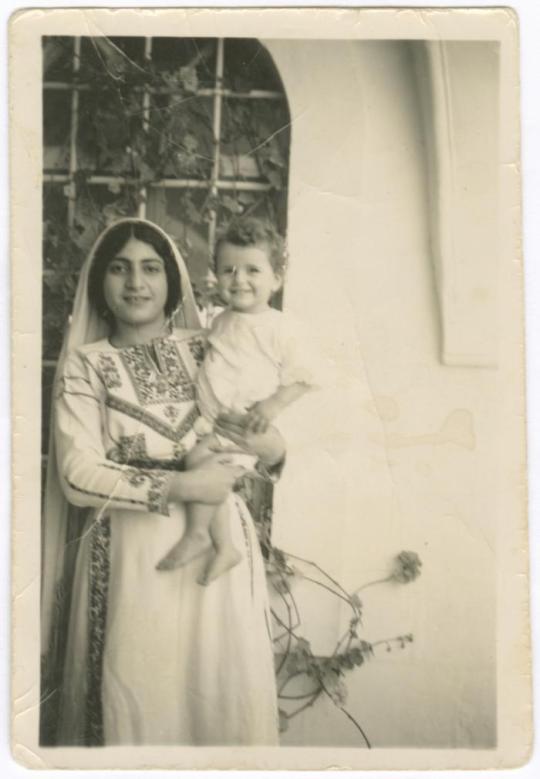
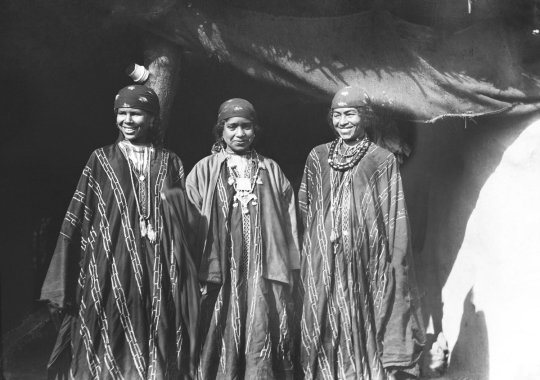
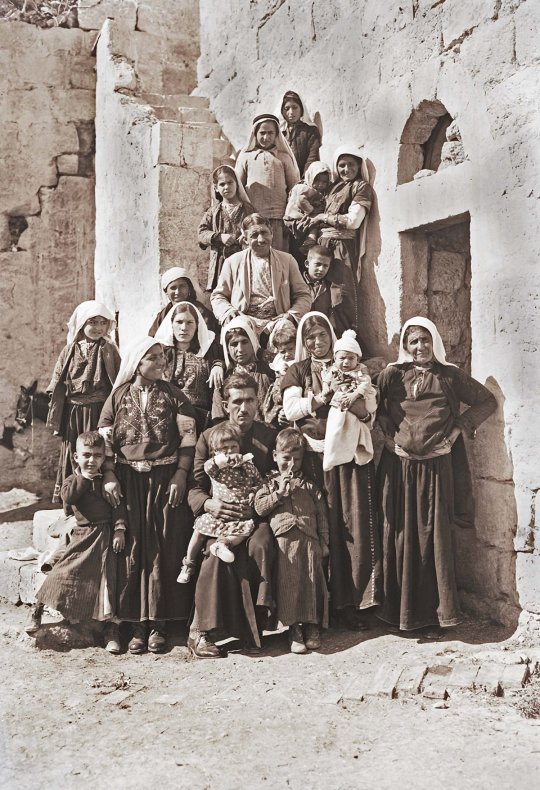
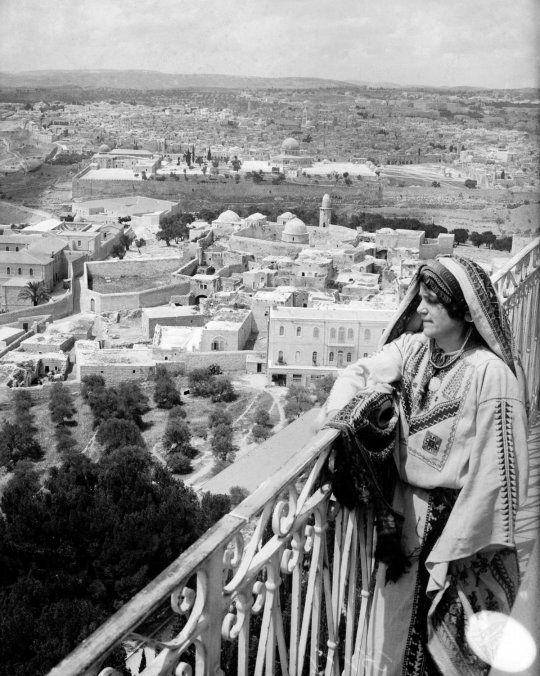
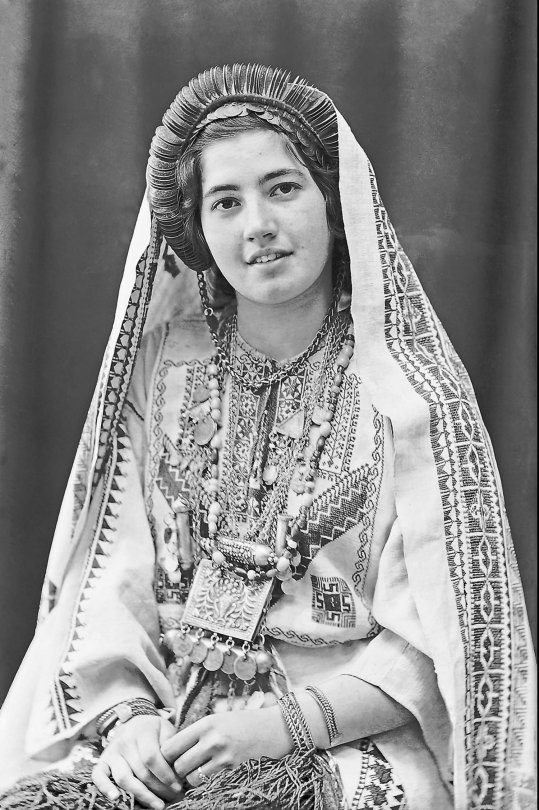

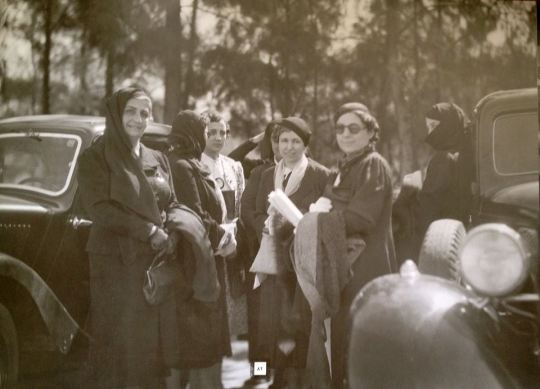
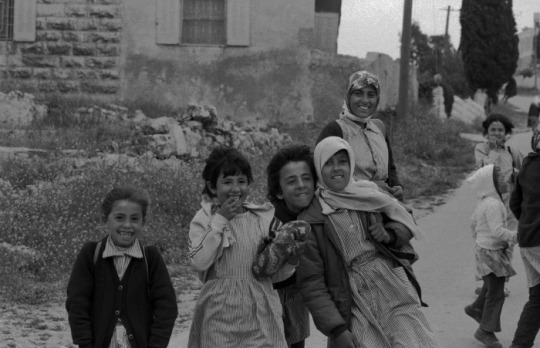
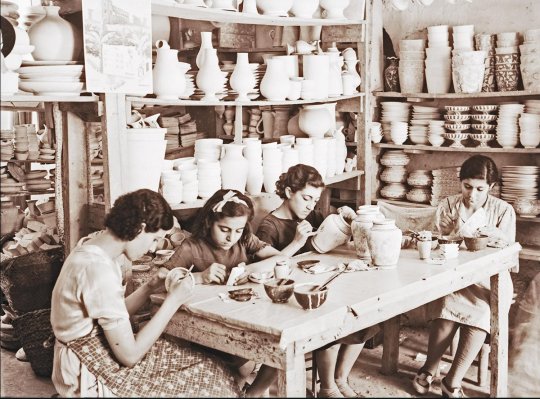
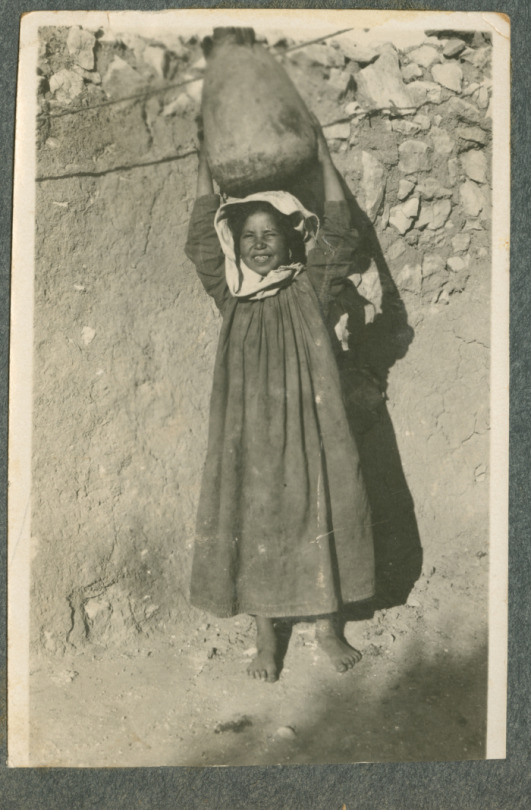

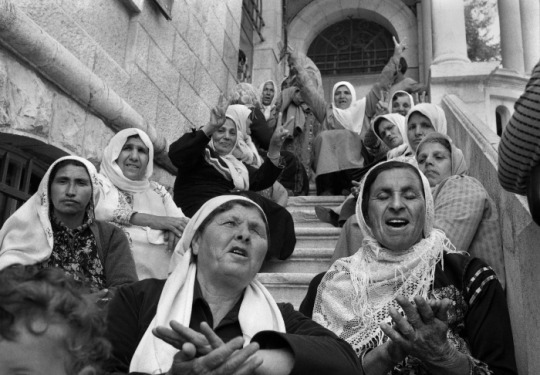
Moments from Palestine across generations and communities
(1) A Bedouin woman smiles in Jerusalem (1898-1914)
(2) Asma Aranki Holding a Child from Her Family at Their House, Birzeit (1948)
(3) Bedouin girls in Jericho (1918)
(4) An extended Palestinian family gathers in front of their house in the village of Beit Sahur, near Bethlehem (1918–35)
(5) From the Mount of Olives, a young woman looks out over eastern Jerusalem (1929)
(6) Ruth Raad, daughter of photographer Khalil Raad, in the traditional costume of Ramallah (1939)
(7) Standing in his neatly ironed shirt and shorts, George Sawabin poses for a studio photo (1942)
(8) Katingo Hanania Deeb, prepares to demonstrate in the 1936-1939 Arab Revolt -- which was a nationalist uprising by Palestinian Arabs against British colonial rule in relation to Palestinian independence and the land acquisition and pushout as a result of the mass Jewish immigration (1936)
(9) Young children walking home from school Beit Deqqo Village, the Occupied Palestinian West Bank, 1987
(10) Four young girls decorating vases in a ceramic workshop in Nablus (1920)
(11) A young Palestinian girl squints and smiles as she holds a jar on her head (1920-1950)
(12) The ancient craft of a Palestinian potter (1918-35)
(13) The mothers of Palestinian detainees' protest in Jerusalem (1987)
Source(s): The British Mandate Jerusalemites (BMJ) Photo Library, Palestinian Museum Digital Archives, The Jerusalem Story + Khalil Raad
Please support, share, cite, and (if financially able) fund these organizations and public storytellers for their rebellious histories and community work!
#decolonization#our world#our history is your history#people#free palestine#palestine#indigenous rights#art of making#and manifesting#history is not neutral#futurepast
4K notes
·
View notes
Text
For usamericans who may not know how to support decolonization and indigenous people in their every-day lives, may I suggest checking this list of native-owned businesses, curated and maintained by indigenous folks. There's food, candles, cbd pre-rolls, clothes, jewelry, hats, baby things, handicrafts, art, and hundreds of other useful and wonderful things. I check this list before I buy non-native owned as often as I can.
Also check out the native-owned (pulitzer-prize winner Louise Erdrich started it!) bookstore and press Milkweed Editions (dot org) for an amazing selection of books by indigenous authors. I recommend Braiding Sweetgrass by Robin Wall Kimmerer (a collection of essays that will change your thinking if your mind is open at all) that's great for sitting down to read for bite-sized chunks. For book recommendations, check out this infographic!
Do you own property and want to support landback but still need a place to live? Odds are good that there's established precedence in your area to transfer its jurisduction to a local tribe and pay your land taxes and etc to them instead of the settler government!
Here is a list of charities and fundraisers for indigenous support.
Other ways to educate yourself and learn what indigenous people are working on nationally and locally is to follow indigenous people online! Many Native peoples on various social medias tag with #indigenous, #native, and by looking at those you will find many other tags and people to follow.
If you have extra cash, consider paying indigenous people's bail, donating to some of the causes linked above, or look for local initiatives to support in your own community!
#indigenous#native#decolonize your thoughts#decolonize#uspol#usa#usamerican politics#decolonization#land back#colonialism#anti colonialism#colonization#resources#links#woodsfae
5K notes
·
View notes
Text
Werewolf: the Apocalypse 5th Edition and the Anti-Indigeneity in the Gaming Industry
reosted with permission from J.F. Sambrano
Dagot’ee!
Shii J.F. Sambrano gonsēē. My nations are Chiricahua Apache (Ndeh) through my maternal grandmother and Cora Indian (Náayarite) through my maternal grandfather. I am a mixed race Indigenous person, and through my father my heritage is English and Scottish. I am currently residing and doing work in my community on the lands of Lummi Nation. I use both gender non-binary and masculine pronouns, but prefer the former. I have several published works in the TTRPG industry, and am probably most known for my contributions to Mage: the Ascension 20th Edition, Werewolf: the Apocalypse 20th Edition, and the Transformers Roleplaying Game, as well as being part of the Essence 20 development team. Further, I also work in higher education at an Indian college, both advising and teaching Indigenous students across the United States. My passion is education, and I believe that we all learn through play, and that TTRPGs are a valuable source of learning, especially on personal, cultural, and social levels. This has always been what has drawn me to TTRPGs since I started playing M.E.R.P. with my brother in 1996 (and before that HeroQuest), through to my “graduation” into more story-driven games such as those presented in the Storyteller System, until now, where I author and produce my own roleplaying games.
I was also part of the First Team (in-joke intentional) hired by White Wolf Studios/Paradox Interactive via Hunters Entertainment to develop and author Werewolf: the Apocalypse 5th Edition. After several months of work, Paradox Interactive chose to go in another direction in early 2021 (I believe it was either March or April) and in fall of that year, it was announced that Werewolf would instead be taken in house, with Justin Achilli as the Brand Creative Lead and primary author of the book. Going forward I will be describing my experience while I worked with Paradox Interactive, primarily through Karim Muammar, White Wolf’s Brand Editor, as well as the developmental editor for Werewolf. Although I worked in a team, both with hired authors and in-house representatives at Hunters Entertainment, I will not be speaking for the experience of others, except when specifically noting unanimous consensuses, and specific interactions (which will go unnamed) that are particularly relevant. My hope is that by highlighting some of the anti-Indigenous attitudes that are central to the foundational members and leaders of the White Wolf brand, that I can provide opportunities for growth and healing within the World of Darkness TTRPG community, but also in the broader gaming community, where these behaviors and attitudes are rampant. I also want the community to have a better understanding of what this experience is like internally, and the challenges that Indigenous creators, as well as other marginalized creators, are met with when they try to make positive change within nerd and geek communities clinging to inherited white supremacist values, even if they don’t realize they are doing so.
What I do not want to be doing in this article is creating fuel for edition wars. I believe that both legacy and Werewolf 5th are rife with anti-Indigenous attitudes, and appalling amounts of appropriation. Both versions deserve criticism, I am not defending one over the other, I am only sharing what my experience was like working on the 5th edition of the book. Further, please understand that I was originally going to wait until I had read the final copy of the book, because I wanted to know how much of my work was used (based on previews I already know some was, just not the extent) and whether or not they decided to credit me for that work, and how I was going to be credited. My belief is that I likely will not be, but I am genuinely uncertain. Knowing how they handled that would have reframed how I addressed this. But more importantly, I want it to be very clear that even before Paradox ultimately pulled the plug on the Hunters team, I was preparing to exit working on the project based on the experience I will describe below. Not only did I find it frustrating, and personally disparaging, but I ultimately decided I was uncomfortable with my name being attached to the product based on the direction they wanted to go. So while I wanted to know whether or not I would be credited, because it would teach me something about their internal practices, I do not want or need the credit.
Finally, the reason that I decided to speak about this now instead of after having a chance to inspect the final product, was because my personal experience dealing with anti-Indigeneity coming from Paradox was just that: personal. But since then I have witnessed a throughline of hateful and xenophobic attitudes wielded against Indigenous people across the globe, and we do not deserve this treatment. I was outraged over the events that led to the segregation of the Latin American fanbase, which culminated from bottom-up criticism about how poorly their people and countries were being defined through World of Darkness products, and ended up with the firing of their Latin American Brand Ambassador, Alessa Torres, because she chose to stand with her community in those criticisms. I was further appalled when the likeness of Tāme Wairere Iti was shoehorned into the Werewolf book, a blatant example of cultural theft: not only in stealing the literal physical identity of an Indigenous person, but also his sacred tā moko. When Paradox Interactive issued an apology for this, it felt incredibly hollow to me in the wake of these events, the hateful attitudes I had personally witnessed coming from the top.
Whether from North America, Mexico, Brazil, Argentina, or Peru, or across the globe in New Zealand, not only do Indigenous people deserve better treatment from such a major company, but their Indigenous and Latino fanbases, who have twisted and worked themselves through difficult representation for decades at this point, deserve better. Apologies are not enough, especially when they come with next to no real change.
Werewolf: the Apocalypse in Context
At the time that White Wolf Publishing began to produce its World of Darkness line, the TTRPG industry was dominated by white men, both as producers, developers, and authors, as well as the main characters in their settings. White Wolf's World of Darkness made an impact at the time, by defying these Eurocentric, patriarchal presentations, first by defaulting to feminine pronouns throughout Vampire: the Masquerade, and then by focusing on Indigenous representation and values in Werewolf: the Apocalypse, and as a young Indigenous nerd, it had a positive impact on me, as I know it has on some other Indigenous people who became fans of the World of Darkness at the time. This was because before opening the pages of Werewolf: the Apocalypse, I had never seen heroes that I could play who looked like me and my culture. It was off, and often offensive, but it was my first experience in which I could directly play a hero who shared my heritage--and I also had more than one option through two different Tribes to do so. This might sound a little like I was cheering for table scraps, but again, at the time, table scraps was more than I had ever seen before.
Werewolf: the Apocalypse 1st Edition was originally published in 1992 via then White Wolf Publishing (not to be confused with Paradox Interactive's White Wolf). From its inception, the premise was interwoven with what its then-authors believed to be Indigenous praxis and representation. Like many pop-culture presentations of Indigeneity from this time period (see Fern Gully, Dances With Wolves, Disney’s Pocahontas, or in TTRPGs, the NAN from Shadowrun) it was rife with problematic and even offensive stereotyping. The most obvious examples thereof are within the two "Pure Tribes" Uktena, and W****** who I will henceforth refer to as Older and Younger Brother. However, Indigenous inspiration was at the core of the game's spiritual premise as well, where animism and "Totems" are central to the setting and gameplay. The way these concepts are presented is trivializing and dehumanizing, but it is important to acknowledge that the appropriation present in Werewolf: the Apocalypse goes a lot deeper than the two Brother Tribes (even the term "Tribe" was meant to invoke a vision of Indigeneity compared to the previous setting in the line's use of "Clan"). Additionally, there is art throughout every generation of these gaming books that represents humans, wolves, and human-wolf hybrid forms wearing Indigenous regalia, including sacred items such as headdresses, or engaged in sacred rituals such as the Sun Dance. The list of problematic representations goes deep, and my examples only scratch the surface, but it is also important for me to note the positive impact that this had, particularly in the 90's.
Even though the primary contributors to these narratives were non-Indigenous authors, or in one case, a Pretendian, and another, a culturally disconnected author, by the time the Revised (or Third Edition) era of the books came around, White Wolf Publishing was actively engaged in cultural consultation. While I do not believe cultural consultation makes a big difference on its own, it matters that the attempt was made, to a degree: while these efforts fall short of what needs to be seen in cultural representation, this was still ahead of most other gaming companies at this time.
Hired by Hunters Entertainment
In February of 2020 I was approached by one of the co-owners of Hunters Entertainment to be one of the primary authors for Werewolf: 5th Edition due to my work on other World of Darkness projects, and let's be honest, because I was capable of bringing a much needed Indigenous perspective to a gameline that was rooted in Indigeneity and rotting with appropriation and racist stereotypes. I was overall receptive to the invitation, largely because I was very passionate about the World of Darkness setting overall, and Werewolf in particular, due to the impact that 90's representation had on me when I was a younger gamer. I also felt hopeful that with a really hard rewrite of Indigenous aspects of the game that I could shift a lot of really painful aspects of the game into something that was a net positive for Indigenous representation. I will tell you now, more than anything, I was excited to rewrite the Younger Brother Tribe, because when separated from racist authors, their message is very empowering and real to my lived experience.
That said, I did not agree to join the project without first asking for reassurances. I said that I was not willing to write negative Native stereotypes. I would not use appropriative language, or generally engage in appropriative writing (which meant at minimum that the names of the Pure Tribes would need to change), and most importantly, that I would not not engage in writing that contributed to erasure. While the person who recruited me to work on the project was eager to work with me, he acknowledged that he was not sure he could get everything I wanted to see approved, but also promised to fight for everything I suggested as hard as he could. Additionally, he shared with me that the original setting pitch for W5 involved all of Younger Brother being slaughtered en masse in a massacre. I made it clear that this was exactly the kind of thing that I would not write. I cannot remember if this was something he suggested to be changed before or after I was invited onto the project, but with some pushback it was changed. However, I point this out because I want you, the reader, to understand how eager Paradox Interactive was to start with mass genocide and erasure as a foundation to the setting. All that said, I cannot stress enough that I have had nothing but positive experiences with Hunters Entertainment, and none of the following concerns fall upon them.
The Sword of Heimdall
The first encounter the Hunters Entertainment team as a whole had with problematic guidelines for the W5 draft was the direction that Paradox Interactive wanted to go with the Sword of Heimdall. At the time, the suggestions from Paradox and Karim Muammar were that the Sword of Heimdall was going to represent the new major villain of the Werewolf setting, and that they were to also represent the far-right, fascist direction that Werewolf society so often turned toward. They were meant to be representative of how far the new concept of Hauglosk could take entire communities. However, the Sword of Heimdall was discussed interchangeably with the Get of Fenris as a whole, and more than once Muammar seemed to suggest that every member of this Tribe was guilty of the same attitudes espoused in previous editions from the Sword of Heimdall. Now let's not beat around the bush: the Sword of Heimdall are literal Nazis. They believe directly in white supremacy and don't shy from it. They wanted to cleanse impure elements from the Get of Fenris, including BIPOC people, other non-white ethnicities, women, neurodivergent Garou, and other disabled Garou.
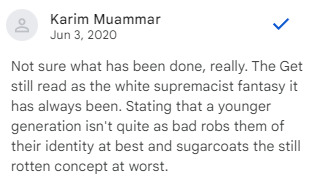
The writing team found this approach problematic for several reasons. The first, and most obvious, was that the direction seemed to want to turn one of the most popular Tribes into a horrific stereotype of its most abhorrent faction. Whether or not Muammar’s goal was to turn them into villains, we could not imagine a world where fans of previous editions would get their hands on this book, and not look for a way to play one of their previous favorite groups, thus creating the issue of making a guide to playing Nazi. Even beyond that, it’s not as if historically there were not players who used the tools of the setting to play Black Spiral Dancers, why wouldn’t this draw people who actually wanted to role-play through these toxic, harmful politics? Further, and while this is less important, it left a bad taste in my mouth, the justification for this major shift in Werewolf lore seemed to change over each pass. At first, Muammar suggested that all Fenrir were Nazis/SoH. Then, when he was provided with evidence that it was a small faction that was eliminated in the early 2000’s, he started to shift toward the idea that we should not follow the lore. Finally, when every single member of the writer’s team flatly refused to provide what would essentially be “a player’s guide to being a Nazi werewolf” the writing was on the wall about the end of our involvement with this product. More than once, he suggested that we were cowardly social justice warriors for being unwilling to work with this concept, even though there were several attempts to write a heroic version of the Fenrir that were focused on undoing these ills of the past.
Indigenous Erasure in Werewolf: 5th Edition
While the entire Hunters Entertainment writing team was handling the major, glaring issue of Paradox’s fervor to include a major Nazi element in Werewolf, I was personally dealing with the problematic approach to the Indigenous issues in the setting. The largest problem, for me, was in addressing Younger Brother’s issues, the history of non-Indigenous writers creating horrifically racist stereotypes, and what was valuable in the Tribal identity that should be saved and recentered. However, my attempts to do so were thwarted with every approach. I rewrote this Tribe four times, and offered three different versions of it to try to earn approval for a final write-up, but each time there was a lot of negativity directed towards my attempts and all them boiled down to this: Muammar felt that having two Tribes (both Younger and Older Brother) representing the “Indigenous population” was too many, and wanted them to only be focused on Older Brother, and that Younger Brother’s connection to a central, Indigenous identity, was undesirable because “other sources wrote them as having Siberian and European connections” and that future writing on this Tribe would require a lot of sensitivity…suggesting that one, Muammar wasn’t interested in doing the work to handle that level of sensitivity, and further, that he wasn’t interested in including me in future work, since I was involved with doing that at the time.

I want to take a moment to remind you that the work that was put into recovering Younger Brother started with “Let’s Kill Them Off” and at this point, through a combination of convincing and pleading, had been walked back to “They can live, but now they’re not connected to being Indigenous anymore” which is just representative genocide of a different variety. “Kill the Indian in him, and save the man.” It was also explicitly something I said I would not write about going into this project. Ultimately, my efforts did not get much further than this, with some specific exceptions I will cite below.
Karim Muammar’s Anti-Indigenous Positions
Muammar consistently and repeatedly communicated to the team in ways that were condescending and dismissive of our collective accomplishments and capabilities, but from my perspective, no one suffered as much significant derision as I did while discussing the changes I wanted to make to Younger and Older Brother in order to make their representation empowering and exciting.
In the pulled quote from the previous paragraph, I want to point out to you that Muammar, who had the title of Lead Editor on this project, refused to capitalize Native American. Further, he would often redline my work with edits to decapitalize my own uses of Native American, as well as the word Indigenous when referring to Indigenous peoples. While there are plenty of people who might want to argue about this, I will point out that both the AP style guide as well as the Chicago style guide (the one which I am most familiar with in my academic historical work) both call for Indigenous to be capitalized when referring to a people. Further, I challenge anyone to defend the consistent decapitalization of Native American. More importantly, the reason that these are standards in respected style guides, is because the English language has been used historically to oppress and erase ethnic identities, including Indigenous identities. By transforming adjectives into proper nouns, we are declaring that Indigenous and Native aren’t descriptors that can be applied to animals, plants, and soil, but real lived identities and culture groups.
When I was explaining to the Paradox team (which was mostly just Muammar) why it was important to change the names of these two Tribes from the appropriative (and offensive) ones used in the past, Muammar pushed back by defending the previously used Younger Brother name, even after reading my extensive research and explanation about how this would harm Indigenous communities and fans.
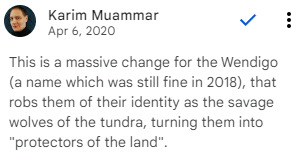
While doing so, he also decided that it was appropriate to refer to this entirely Native American tribe by the word “savages” a slur that has been specifically used to dehumanize Native Americans, and then mocked my rewrite that focused on presenting them as stewards of the land using Indigenous methodologies and praxes, instead of the “savage” racist stereotypes they were presented as in previous editions. Further, as in the above quote, even after it was communicated that the use of this term was problematic, he kept doubling-down to use it to refer to the Tribe.
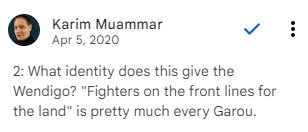
Even though I worked hard to redefine Younger Brother through Indigenous theory, such as place-based theory, relational theory, and communal theory, Muammar either refused to recognize this work, dismissing it as simple, or else simply could not understand the importance of these changes. Either way, the choice is that he didn’t want them to change, or couldn’t comprehend why the change was important because of how entrenched in white supremacist thinking he is. Further, after the massive effort that I put forward to attempt to educate him and the rest of the Paradox team on these issues, the insistence on using offensive terms and belittling my work felt intentional. So let’s talk about the work I did that was above and beyond my job description: free cultural consulting work.
“Sensitivity” and Consultation
I have seen several misunderstandings of my role working on this project going around, so I want to make something very clear. I was hired to work on this project as an author, and nothing else. I was not ever hired to be a cultural consultant. I do not do cultural consulting work. While I feel that there are many creators and companies who hire cultural consultants with the best intentions in mind, their responses often fall short of what is needed, as no one is ever obligated to actually follow the advice of cultural consultants. Further, I think there are also many companies who choose to hire cultural consultants only to say “we did this minimal step, and that is enough” in order to ward off naysayers.
However, anyone who hires me gets some level of cultural consulting for free, because it comes out in my writing–in both what I won’t write and what I choose to center my writing around. In the case of Werewolf 5th Edition, however, it was far more involved than this. I came with a plethora of “I will not write X” because I knew the setting was so problematic. A short list of my demands besides not being willing to write Indigenous erasure, was that we needed to change the names of the Pure Tribes (and the term Pure Tribe itself), we needed to change the word Totem to Patron, and also the Patrons of the Pure Tribes. We needed to move away from the term Metis for obvious reasons, and we needed to move away from the term Skin Dancers. I also specifically noted that there was a lot of cultural theft happening from the beginning of Werewolf until now that I wanted to address. The only way these issues were going to be addressed was to convince Paradox they were actual issues on the level of PR concerns, because nothing else was likely going to be considered. So in order to achieve this, I put in weeks worth of research, writing, and meetings with top level administrators with Hunters Entertainment so that they could bring this information to Paradox. I never documented my hours, but I would guess that I did approximately 80-100 hours of what I could only describe as cultural consultation work for free that was outside the contract work I was hired for. Let’s be clear: I did this willingly because I was passionate about the positive changes I wanted to see in this product, because I believed that Werewolf’s historic ills could be turned toward non-toxic representation.
Besides my actual words, such as naming the Ghost Council, and arguably the name Gale Stalkers came from a combination of names I pitched to Paradox after Winter’s Teeth was denied, and several sentences and paragraphs that I have seen so far that appear so close to what I originally wrote that you could imagine they were just edited versions, my largest contribution toward the final version of Werewolf: 5th Edition was this work. The only reason the offensive, appropriated names were changed were because of hours of my work to convince them it needed to happen. The reason that the Gale Stalkers aren’t just dead and gone: again, I pushed against this. The reason that Skin Dancers, Totem, and Metis will not appear as canonical titles? I pushed against their unwillingness to alter these things (see Karim’s defense of Wen**** Tribe name above).
Further, and this is the biggest reason I decided to write this article before seeing the final version of the book, I want to mention that I was also included in discussions with Hunters Entertainment to potentially be part of the art direction team, especially to oversee depictions of Indigenous characters, regalia, and art, to ensure that it would be represented either respectfully or not at all. I decided I needed to speak as soon as possible after the artistic portrayal of Tāme Iti appeared in the Glass Walkers preview without his permission. There are many arguments surrounding this issue and I am not going to address everything, but ultimately, I can tell you that had I remained as part of the art direction team, and saw that, I would have questioned it immediately. Even if I didn’t recognize Tāme Iti immediately, I would have asked what the source was on the depiction of moko in that piece, because I am aware that this is a sacred form of art–and I had already discussed wanting to make sure things like Crinos in headdresses didn’t appear in the book (as had often happened in previous editions, particularly on a certain white-skinned character whose name rhymes with Steals-the-Past).
As time working on this project went on, and I went through rounds and rounds of trying to convince Muammar and Paradox that it was important to not steal Indigenous identities, art, and stories, and that a greater effort needed to be put in powerful and empowering Indigenous representation, and I constantly ran into refusals and criticisms that were clearly hateful toward Indigenous identities and peoples, not to mention the push to represent Nazism as a major part of the game setting, I grew increasingly frustrated and restless with feeling like I was trying to work on a challenging project while also defending my right to exist as the person I am at every turn. Eventually I turned to another Indigenous TTRPG and game creator to ask for advice, and after a long and difficult discussion, I came to the conclusion that I was going to talk to the Hunters administration team and tell them that if Muammar kept using slurs and other anti-Indigenous language and attitudes, I was going to need to step off of this project, because it was harmful to me on a personal level. In furtherance of this point, I have been avoiding doing any contract work at all where I can tell that I am wanted for my specific cultural perspective ever since, because this situation was so harrowing for me.
Unfortunately, before I could have this conversation, after one final draft of Younger Brother and Bone Gnawers (which had its own issues, but that is not the point of this discussion), before we received any other specific feedback, the Hunters Entertainment administrators announced to the writing team that Paradox had decided to take the book in-house, and would no longer need our services.
The main point I would like to leave you with, besides these few specific quotes (out of dozens and dozens) that Muammar made that were anti-Indigenous, is that there is often a big call to have more BIPOC voices in various entertainment industries, so that both our stories, perspectives, and unique views on how the universe and life works, can be included; so that an industry that is historically, harmfully Eurocentric, might turn toward new, healthier, and inclusive directions. And I agree with this call for change, but I implore you to consider the conditions that BIPOC creators often have to work under: doing cultural/identity work and consultation for free as part of being present, being subject to vicious refusals of our experiences and perspectives, and straight-up having slurs lodged against our work. I want to see these changes in the industries we love, including the gaming industry, but currently the people who are in charge, who have the most power, are severely hostile to our work and our perspectives. This is why, for example, works like Coyote & Crow were done with an almost entirely Indigenous group of creators, and led by Indigenous creators, because trying to work for and with this ugly, hateful, and xenophobic group of people is so often exhausting, both mentally and spiritually, and because no good changes end up being made.
I am glad the harmful, appropriative terms were removed from the setting. I am glad I was part of the fight to make that real. I am not so glad that I was treated with hostility and racism by Muammar for the effort and love I put into this work, and I am not so glad that I will certainly be reviled by one of the two communities I did this work for–the gaming community, and certainly the people in power in this industry–and I am also not so glad that I didn’t have the opportunity to properly acknowledge how much of Werewolf’s base themes and setting are twisted and tied-up in Indigenous appropriation without giving the proper acknowledgments.
More than anything, I hope that this story will help you, the fans, realize that there is a lot of darkness in these communities, and they won’t change unless you hold their feet to the fire.
Ánaagodzįįhł
J.F. Sambrano
#decolonization#ttrpg#werewolves#writing#world of darkness#werewolf: the apocalypse#werewolf the apocalypse#mage: the ascension#vampire: the masquerade#changeling: the dreaming
2K notes
·
View notes
Note
I’ve seen Palestinians refer to their homeland as Occupied Palestine and “Israel” as the occupation, to better illustrate the settler colonial history of “Israel” and deny it legitimacy. As “America” is also a settler colony, would it be accurate to refer to the so-called “USA” in general as Occupied Turtle Island/the American Occupation or is that terminology specific to Palestine?
Turtle Island is the name given to North America by the Anishinaabe, though it's certainly not the only indigenous name. The Anishinaabe/Ojibwe/Chippewa just happen to be one of the largest native group so a lot of our terms are more easily popularized.
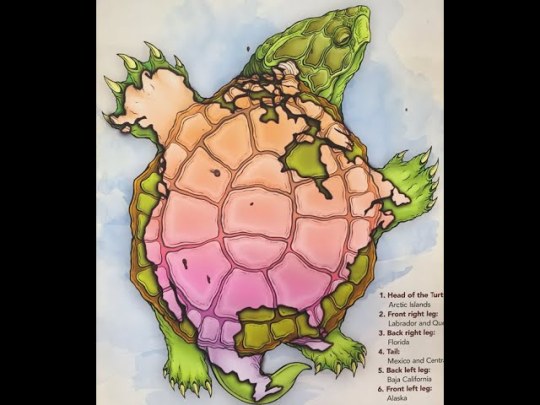
And I'd say yes and no as for it's accuracy tbh.
Like with Palestine, you have to be Very Clear when differentiating the people of Turtle Island and our wants from the US government and the people who support the US government.
You can't support Palestinian liberation and the existence of the state colonizing them. In the same way you can't claim to support Native liberation and Turtle Island but still want to remain our colonizer.
It's one thing to say you support native sovereignty, it's another entirely to realize that support in practice would mean calling & working for the US to be dismantled; it means Choosing to be a person from Turtle Island instead.
So yes, call it Turtle Island, but say it with the understanding and gravity of it.
Start by learning 5 medicinal plants and 5 edible plants in your area, figure out how you can support local tribes. Learn how to be from Turtle Island instead of the USA. Find values and principles to believe in that are your own and not just moralized propaganda.
The less dependent you are on the US, the less freedom you realize you have within it.
#asked#answered#turtle island#settler colonialism#colonization#decolonization#Decolonize#ojibwe#chippewa#Anishinaabe#anishinaabemowin#first nations#native american#ndn
818 notes
·
View notes
Text
the thing is if you can excuse colonialism imperialism and genocide when it's perpetuated against people who are homophobic/transphobic/misogynistic/etc you are excusing ALL colonialism imperialism and genocide. there is no nation on earth free from bigotry. you should be against colonialism imperialism and genocide not because it's perpetuated against the Most Pure Accepting People Ever but because colonialism imperialism and genocide are inherently and fundamentally evil.
1K notes
·
View notes
Text
Palestine Bird Designs
One of the first times I spoke with my friend (the one I am fundraising for) about Palestine he spoke so passionately about how birds represent freedom to him, as they come and go over the walls at will. Israel has caused absolute devastation to Palestine's wildlife, cutting off migratory pathways for land animals and destroying habitats. Birds (though still hurt by habitat loss of course) can pass over the barriers. Watching them fly across the walls is a bittersweet thing for those trapped within them. The flight of birds has represented freedom to so many cultures, but there's a certain extra emotional poignancy that comes with the symbolism for people who are trapped by the same barriers that the birds traverse with ease.
Of course this is not the only reason I make so many bird designs, doves are a standard symbol for peace and I'm also absolutely obsessed with birds in general, but the way my friend told it was very touching and I wanted to share. My various bird designs have gotten a lot of attention the last few days, so I'll compile all my birds so far in one place here:
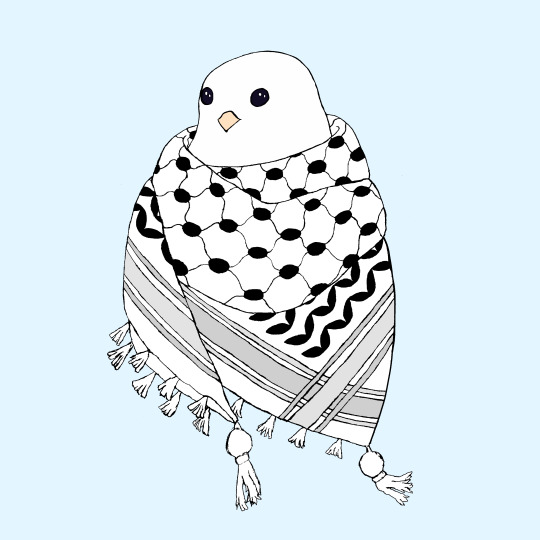
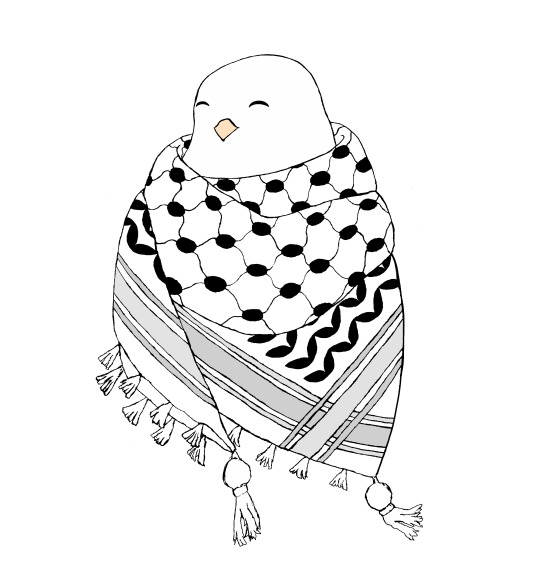
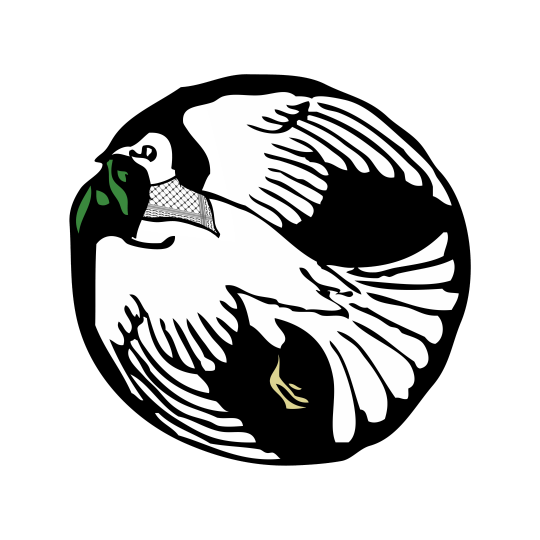
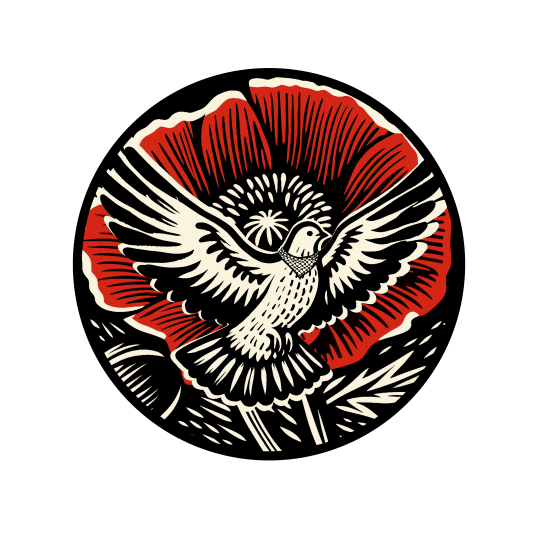


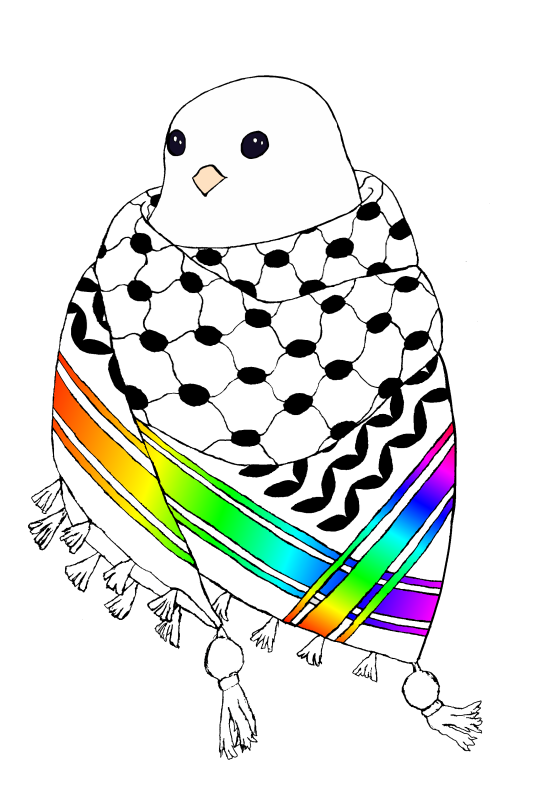

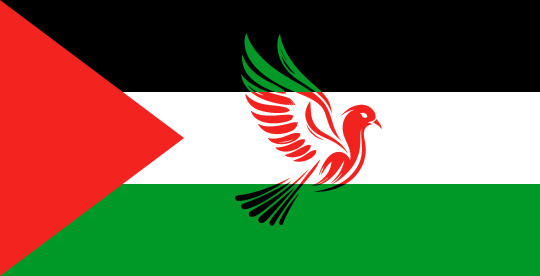
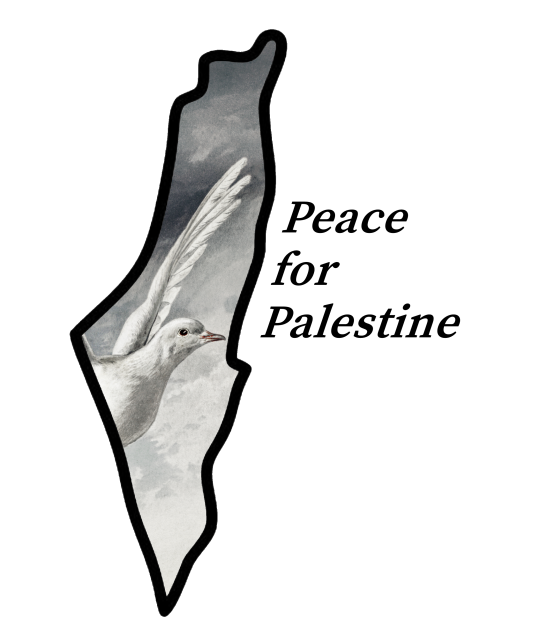
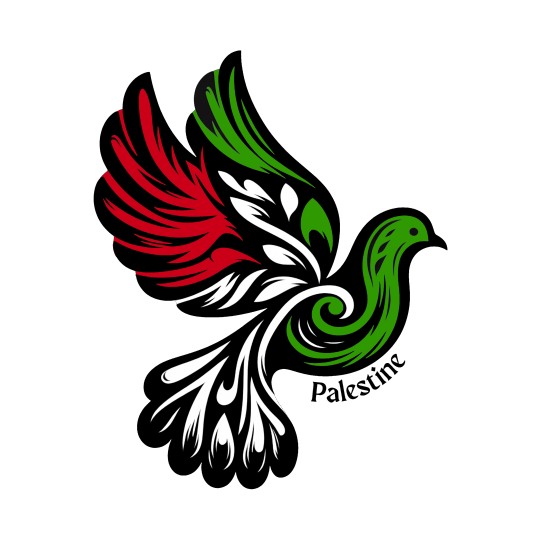

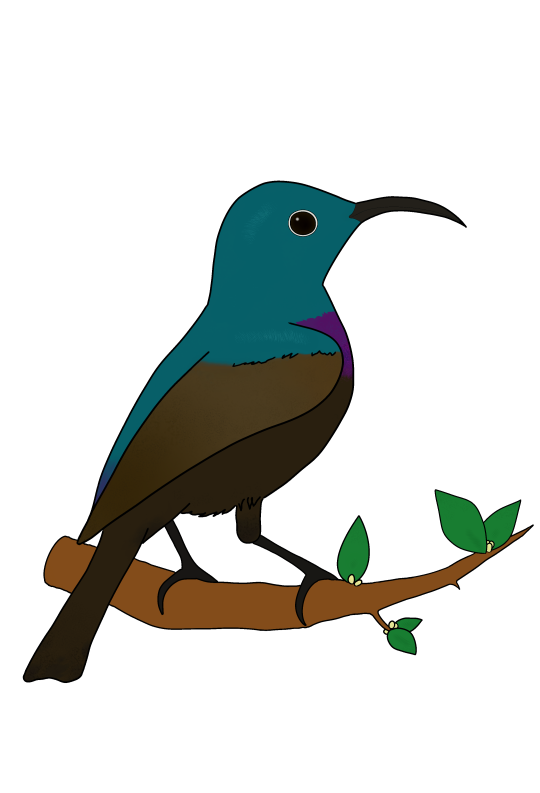
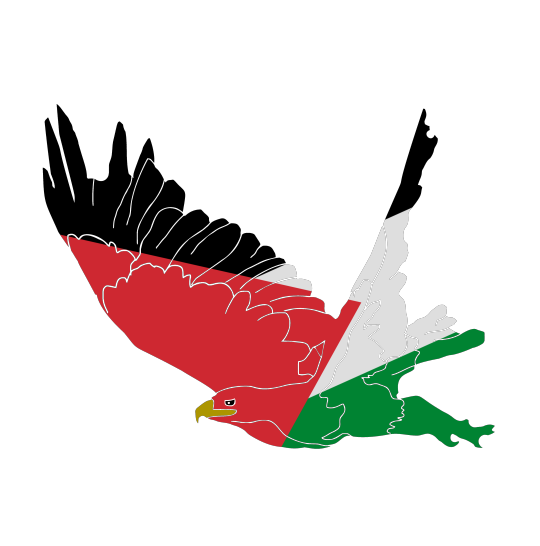
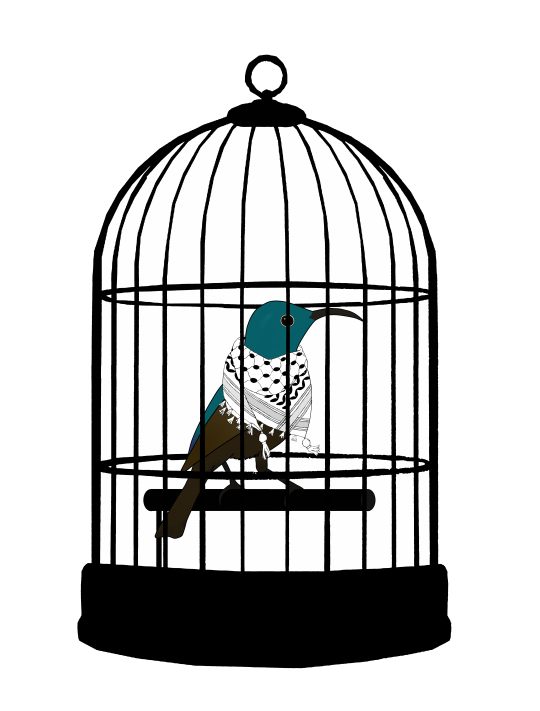


You can find all my designs here. Redbubble will show you a random product, click on it to see all product options (shirts, stickers, notebooks, etc). ALL PROCEEDS will go to my Palestinian best friend to help him afford to bring his girlfriend over to America and to help his other loved ones around the Levant who are being hurt directly and/or financially by the attacks on Gaza, the increasing Israeli raids in the West Bank and the collateral damage in surrounding countries.
#palestine#free palestine#gaza#free gaza#save palestine#jerusalem#colonialism#decolonization#فلسطين#social justice#human rights#stickers#birds#birb#birblr#birdblr#ceasefire#art#gaza strip#gazaunderattack
906 notes
·
View notes
Text
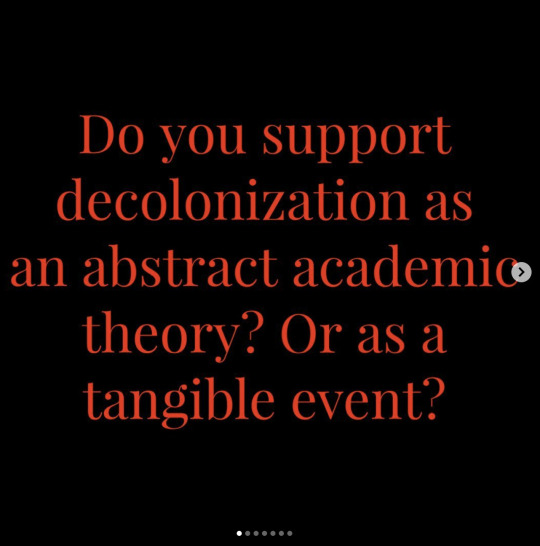
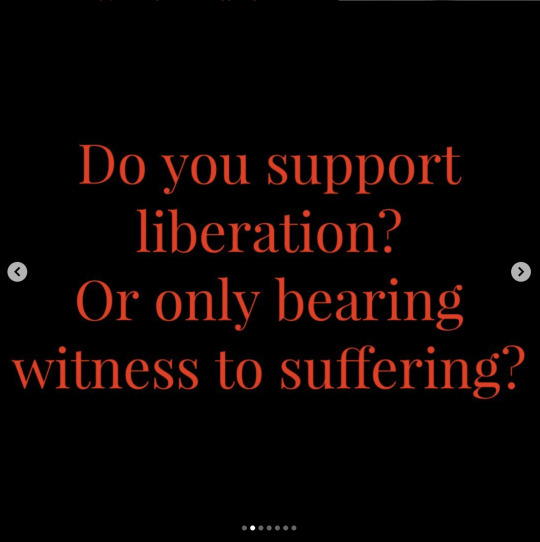
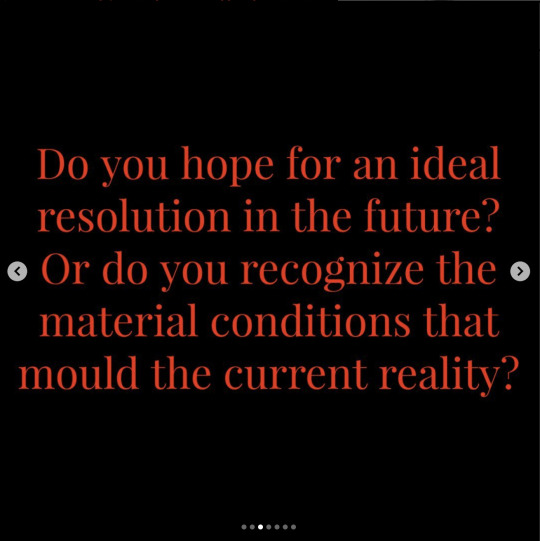
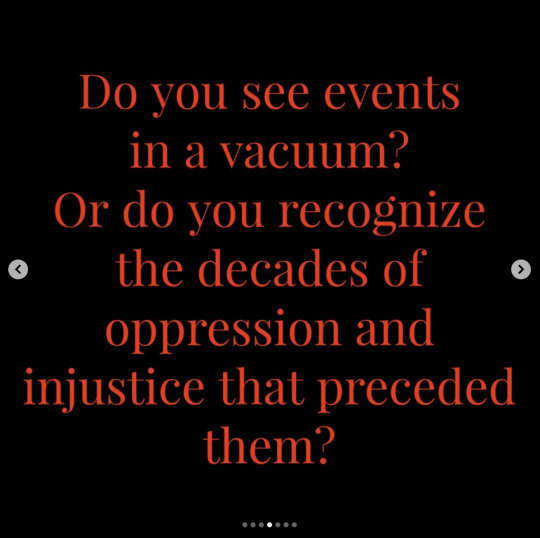
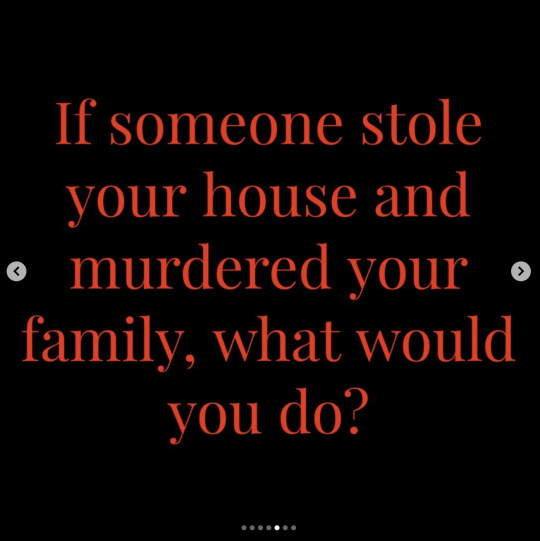
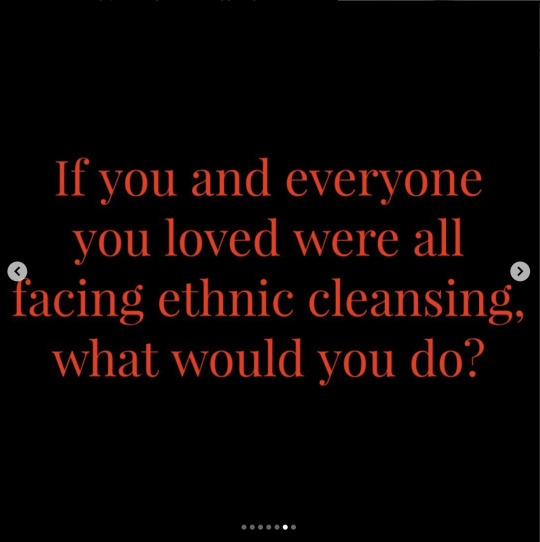
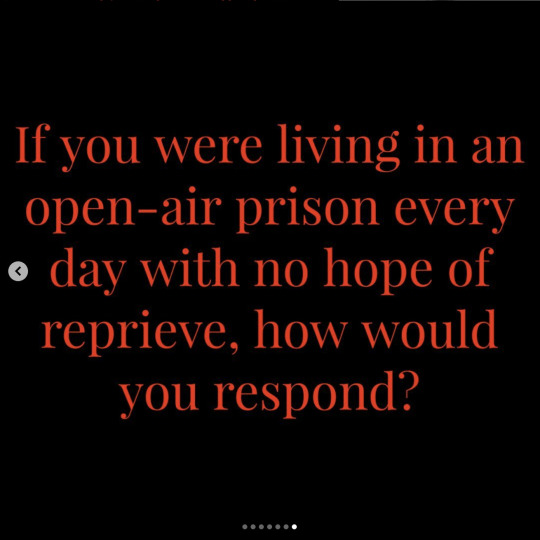
"Questions to keep in mind with the coming news cycle."
Reposting this from @ savesheikhjarrahnow on ig.
Prepare yourself for a torrent of pro-Zionist colonial lies and obfuscations in the Western news. Do what you can to counteract it. Palestine needs your help, now more than ever.
From the river to the sea, Palestine will be free!!! 🇵🇸🇵🇸🇵🇸
#decolonisation#decolonization#decolonialism#decolonize#palestine#free palestine#palestinian resistance#indigenous#zionism#indigeneity#landback#colonialism
2K notes
·
View notes
Text
A historically and culturally significant lake in California's San Joaquin Valley that first disappeared in 1898 has returned after last year's atmospheric rivers flooded the region.
Tulare Lake, known as Pa'ashi — or "big water" — to the local Tachi Yokut Tribe, was "once the largest body of freshwater west of the Mississippi River," per Earth.com.
Vivian Underhill, who published a paper on Tulare Lake as a postdoctoral research fellow at Northeastern University, noted it was mostly sustained by snowmelt from the Sierra Nevada mountains and was 100 miles long and 30 miles wide at its peak.
The lake served as a key resource for Indigenous Peoples and wildlife and was once robust enough to allow steamships to transport agricultural goods throughout the state.
However, government officials persecuted and displaced the indigenous communities in the late 1800s to convert the area for farming through draining and irrigation.
"They really wanted to get [land] into private hands so that indigenous land claims — that were ongoing at that time — would be rendered moot by the time they went through the courts," Underhill told the Northeastern Global News. "It was a deeply settler colonial project."
While Pa'ashi periodically reappeared during the 1930s, '60s, and '80s, the barrage of atmospheric rivers California experienced in 2023 revived the lake despite the region receiving just 4 inches of rain annually. According to Underhill, Tulare Lake is now the same size as Lake Tahoe, which is 22 miles long and 12 miles wide.
Its resurgence has led to the return of humid breezes at least 10 degrees cooler than average and native species, including fish, amphibians, and birds. Lake Tulare was once a stopping point for migratory birds traveling a route known as the Pacific Flyway.
"Something that continues to amaze me is — [the birds] know how to find the lake again," Underhill told the Northeastern Global News. "It's like they're always looking for it."
The Tachi Yokuts have also returned to Pa'ashi's shores, once again practicing their ceremonies and planting tule reeds and native sage.
#submission#!!!#good news#lakes#Tulare Lake#Pa'ashi#big water#water#water is life#revitalization#anti colonialism#decolonization#nature#Tachi Yokut#indigenous peoples
412 notes
·
View notes
Text
DECOLONIAL ACTION READING
I recently compiled these to add to a comrade’s post about Land Back, but actually I think they deserve their own post as well.
Amílcar Cabral - Return To The Source
Frantz Fanon - The Wretched Of The Earth
Hô Chí Minh - archive via Marxists.org
Thomas King - The Inconvenient Indian
Abdullah Öcalan - Women’s Revolution & Democratic Confederalism
Edward Said - The Question Of Palestine
Thomas Sankara - archive via Marxists.org
Eve Tuck & K. Wayne Yang - Decolonization Is Not A Metaphor
Other key names in postcolonial theory and its practical application include:
Sara Ahmed
Homi K. Bhabha
Aimé Césaire
Albert Memmi
Jean-Paul Sartre
Léopold Séder Senghor
Gayatri Chakravorty Spivak
All of these will help you interpret and confront the realities of colonisation, and ideally help us understand and extend solidarity to comrades around the globe. Decolonise your mind, and don't stop there!
#land back#postcolonial#postcolonialism#postcolonial theory#decolonization#decolonize#decolonise#decolonisation#Edward Said#Tuck & Yang#Frantz Fanon#Amilcar Cabral#Free Ocalan#Sankara#Ho Chi Minh#Thomas Sankara#Abdullah Ocalan#original#Thomas King#Eve Tuck#K. Wayne Yang
2K notes
·
View notes
Text
some japanese ww2 atrocities you might not have heard of:
germ warfare in harbin
extensive human experimentation (that the us covered up)
operation sook ching (singapore)
bataan death march (philippines)
romusha slave labor in southeast asia
3K notes
·
View notes